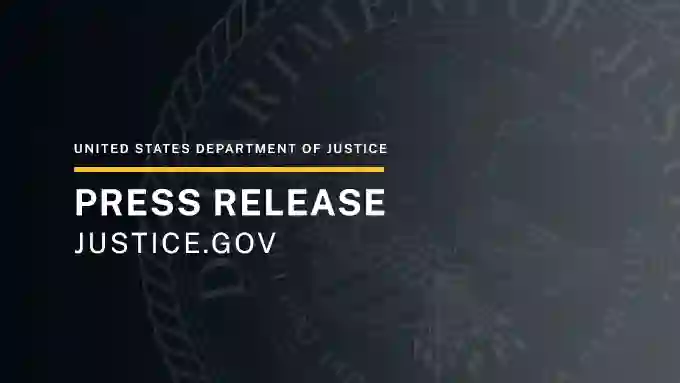She was once seen as a respected medical professional—an expert in Medicare, a published authority on what qualifies as “medically necessary,” and a licensed nurse practitioner with a voice in the healthcare system.
But behind the title and credentials, Scharmaine Lawson Baker was orchestrating a massive scam that would defraud Medicare out of more than $12 million.
Now, a federal jury has found the 58-year-old, who lives in Richmond, Texas, guilty of a calculated healthcare fraud scheme that preyed on vulnerable patients and turned a legitimate medical system into her personal cash machine.
Genetic Testing Scam Uncovered
From 2018 to 2019, Lawson Baker worked as an independent contractor for a telehealth company.
But what seemed like a convenient healthcare model turned into the foundation of a large-scale scam.
She ordered hundreds of cancer genetic tests for patients she never examined—and in many cases, never even met.
Most of her so-called “consultations” were quick phone calls, some lasting under a minute.
Without conducting physical exams or reviewing medical histories, she signed off on tests that Medicare later paid for.
And the worst part? Many of those tests were completely unnecessary.
Fake Diagnoses and Kickbacks
To make the testing appear legitimate, Lawson Baker often fabricated diagnoses.
In one particularly egregious example, she diagnosed male patients with cervical cancer—something biologically impossible.
She wasn’t just ordering unnecessary tests. She also failed to review the results, even when they revealed serious genetic markers that could impact patients’ health.
This wasn’t just careless; it was intentional deceit.
In return for her signature on the orders, she received bribes and kickbacks from the telehealth company involved—money she never disclosed during bankruptcy proceedings.
Misleading Patients and Exploiting Trust
Many patients believed they were being offered free cancer screenings.
In reality, they were being misled by a licensed professional who capitalized on their trust.
Lawson Baker used her position and credibility to convince people they were receiving preventative care, while in fact, they were part of a profit scheme.
The tests didn’t detect existing cancers, and they weren’t meant to. But patients didn’t know that.
They believed the voice on the other end of the line was helping them. Instead, they were being used.
Millions in Fraud, and a Harsh Sentence Ahead
Altogether, Lawson Baker was responsible for more than $12.1 million in fraudulent Medicare claims.
The labs that processed these unnecessary tests pocketed over $1.5 million from those claims.
For her role in this elaborate scheme, Lawson Baker now faces up to 10 years in prison per count after being convicted on six counts of healthcare fraud.
Her sentencing is scheduled for November 19, when a federal judge will weigh her punishment based on the U.S. Sentencing Guidelines and other legal factors.
Government Officials Speak Out
Officials from the Department of Justice and the Department of Health and Human Services didn’t mince words in their response.
Acting Assistant Attorney General Matthew R. Galeotti called Lawson Baker’s actions “shameless,” saying she exploited her license and the trust of patients for personal gain.
Deputy Inspector General Christian J. Schrank described the scheme as “calculated,” saying it represented a serious betrayal of public trust.
Acting U.S. Attorney Michael Simpson also emphasized the broader impact of such fraud—not just on Medicare’s finances but on public confidence in the healthcare system.
The Bigger Picture in Health Care Fraud
Lawson Baker’s case is just one of many uncovered through the Health Care Fraud Strike Force Program, which has been in operation since 2007.
The program has led to over 5,800 defendants being charged in schemes totaling more than $30 billion in fraudulent claims to both government and private insurers.
The Department of Justice and HHS continue to push for stricter oversight and aggressive prosecution of those who attempt to exploit Medicare and Medicaid systems.
Their message is clear: fraud won’t go unnoticed, and there will be consequences.
